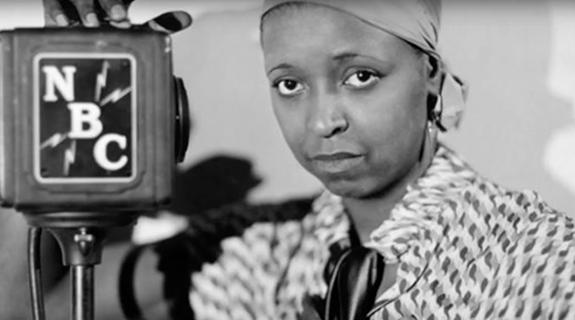In honor of Black History Month, Daily Brief takes a look back at the many rich contributions of African-Americans to television’s history.
In the above video, actress Ann Cusack talks with Dr. Donahue Tuitt, CEO and president of UNIFYme.TV, about the role of African-Americans in shaping television.
Examples the two discuss include groundbreaking shows such as Star Trek, which Gene Roddenberry cast with an intentionally color-blind eye. The show, which starred black actress Nichelle Nichols as communications officer Lt. Nyota Uhura, was one of the first on TV to boast a diverse ensemble cast.
“We stress humanity and this is done at considerable cost,” said the always forward-thinking Roddenberry at the time. “We can’t have a lot of dramatics that other shows get away with—promiscuity, greed, jealousy. None of these have a place in Star Trek.”
Star Trek, which was not initially popular but grew into the cult hit everyone knows today, caught the eye of one significant viewer: Dr. Martin Luther King, Jr. King came backstage at a point and wanted to meet Nichols, who was just told that a “fan” was waiting to speak to her.
After she got over her surprise at learning who this fan was, he assured her, “We don’t need you to march. You are marching. You are reflecting what we are fighting for.”
“Don’t you understand that for the first time we are seen as we should be seen? You don’t have a black role, you have an equal role.”
Cusack and Tuitt move on to discuss Julia, starring Diahann Carroll. Carroll was one of the first African-American women to lead a primetime series, which aired from 1968-71. Julia told the story of a woman and her young son who moved into an interracial community during the time that President Lyndon Johnson signed the Civil Rights Act in April 1968
“The show really responded to what was going on in society at the time,” says Tuitt.
From there, Cusack and Tuitt discuss 1977’s mini-series Roots, which remains one of the most-watched finales of all time, with some 100 million people tuning in. At the time, ABC was nervous that people wouldn’t watch a show with a predominantly black cast, so they scheduled it to air over eight consecutive nights from Jan. 23 to Jan. 30, 1977.
“I remember when that came out, it was so huge,” says Cusack. “The entire country was riveted by it, it was so ground-breaking.”
Even today, diversity is still an important part of the conversation around television. Shonda Rhimes has received many accolades for her color-blind approach to casting in shows such as Grey’s Anatomy, Scandal and How to Get Away with Murder, while programs such as ABC’s Black-ish take on the issues of the day and manage to do it with grace and humor.
This year, FX’s Atlanta — created, written, executive produced by and starring Donald Glover — is one of the year’s most critically-acclaimed shows. Atlanta offers a gritty look at what many African-Americans experience every day, but manages to do it with a light comedic touch.
“We want to celebrate the rich history and the journey of African-Americans so that people can really understand where we’ve come from … and how television has been used to transcend culture and future generations,” says Tuitt. “What we want to celebrate in the legacy is timeless television and show the lineage of how African-Americans have been integral [to that].”
[Video by PromaxBDA Senior Producer LaFern Cusack]
Tags:













































__twocolumncontent.jpg)











